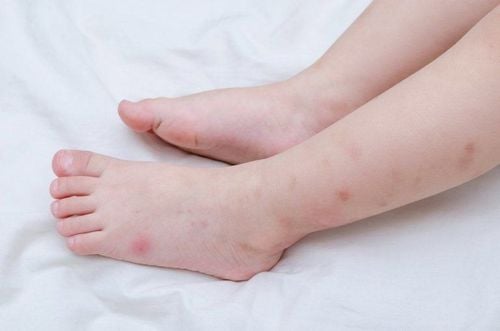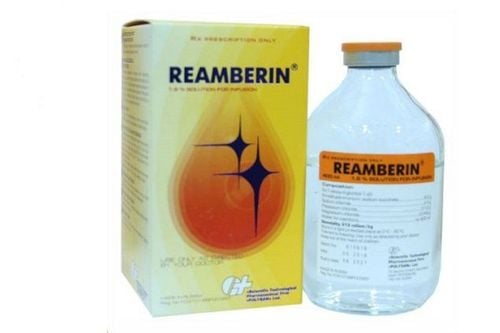Tuna allergy can occur in people with a history of allergies or sensitive constitutions and is the cause of mass poisoning cases. This is a popular fish in Vietnam because of its high nutritional value, being rich in minerals, unsaturated fatty acids, vitamin D, phosphorus, and low-fat content, bringing health benefits to consumers.
The article was professionally consulted by Doctor I Do Van Manh - Emergency Resuscitation Doctor - Emergency Resuscitation Department - Vinmec Ha Long International General Hospital.
1. How does tuna consumption lead to poisoning?
Although tuna is not toxic, it contains high levels of free Histidine. When the fish is alive, the Histamine in the fish meat (concentrated in the gills and intestines) is metabolized by the Decarboxylase enzyme produced by bacteria without harming the fish.
However, if you buy spoiled tuna that has been left out for a long time, the fish's protective barrier will not be able to inhibit the growth of microorganisms, spreading into the fish meat. This leads to the production of histamine-producing enzymes in the fish. This is the cause of food poisoning in consumers.
Histamine can cause serious allergic reactions including edema, headache, vomiting, itchy red skin, diarrhea, dizziness, rapid heartbeat, and even death if not treated promptly.
In addition, this substance forms rapidly in tuna and is not destroyed by conventional preservation methods such as freezing, cooking, smoking, sterilization, or canning, which can lead to tuna allergies in consumers.
2. Signs of tuna allergy
After eating tuna, symptoms of poisoning usually begin to appear after about 20-30 minutes, including:
- Dizziness, red face, and headache
- Dry mouth, hot throat
- Nausea and vomiting
- Abdominal pain and diarrhea
Rash and hives are the most common signs. The rash resembles sunburned skin with clear boundaries. The rash often appears on areas of the body such as the chest, shoulders, neck, arms, and face. In more severe cases, symptoms such as bronchospasm, respiratory failure, and low blood pressure may be present (vasodilatory shock).

3. How to treat tuna poisoning
Most cases of tuna allergy are usually not too serious. However, in people with diarrhea and vomiting, dehydration can lead to hypotension.
In mild cases, people with tuna allergies only experience symptoms such as redness and itching on the skin. At this time, the patient should go to a medical facility to be prescribed antihistamines by a doctor. After 2-3 days of using the medicine, the patient can recover completely.
In addition to using Western medicine, those with mild allergies or who do not experience anaphylactic shock can use natural ingredients to reduce symptoms such as honey, ginger, lemon, and juices....
In severe poisoning, the patient may experience symptoms such as nausea, diarrhea, headache, dizziness, and hypotension. At this time, the patient needs to be taken to the hospital for treatment with medication and intravenous fluids to compensate for the loss of water and electrolytes due to vomiting and diarrhea.
To avoid tuna poisoning, people should follow these instructions:
- Choose to buy tuna at supermarkets or places where the fish is well preserved, ensuring that the fish is not rotten or spoiled.
- If you have to buy fish at the market, choose sources that sell fish with cold storage facilities (temperature below 4.4°C) or use ice cubes to preserve (ice covers the fish). In addition, people should choose salted fish or fish slices that still have fresh blood when cut.
- People should absolutely not eat tuna if they are allergic to this food to avoid allergic reactions that can become progressively more severe
- From 7 to 8 months old, children can start eating fish. However, parents should let their children try a small amount to monitor allergic reactions. If your child shows signs of an allergic reaction after eating tuna three times, you should absolutely not feed them this type of fish again.
Although tuna is nutritious, it can easily cause food poisoning. Therefore, to ensure safety, everyone should buy fresh fish and have good cold storage facilities. In addition, people with a history of tuna allergy should avoid this type of fish.
To arrange an appointment, please call HOTLINE or make your reservation directly HERE. You may also download the MyVinmec app to schedule appointments faster and manage your reservations more conveniently.














